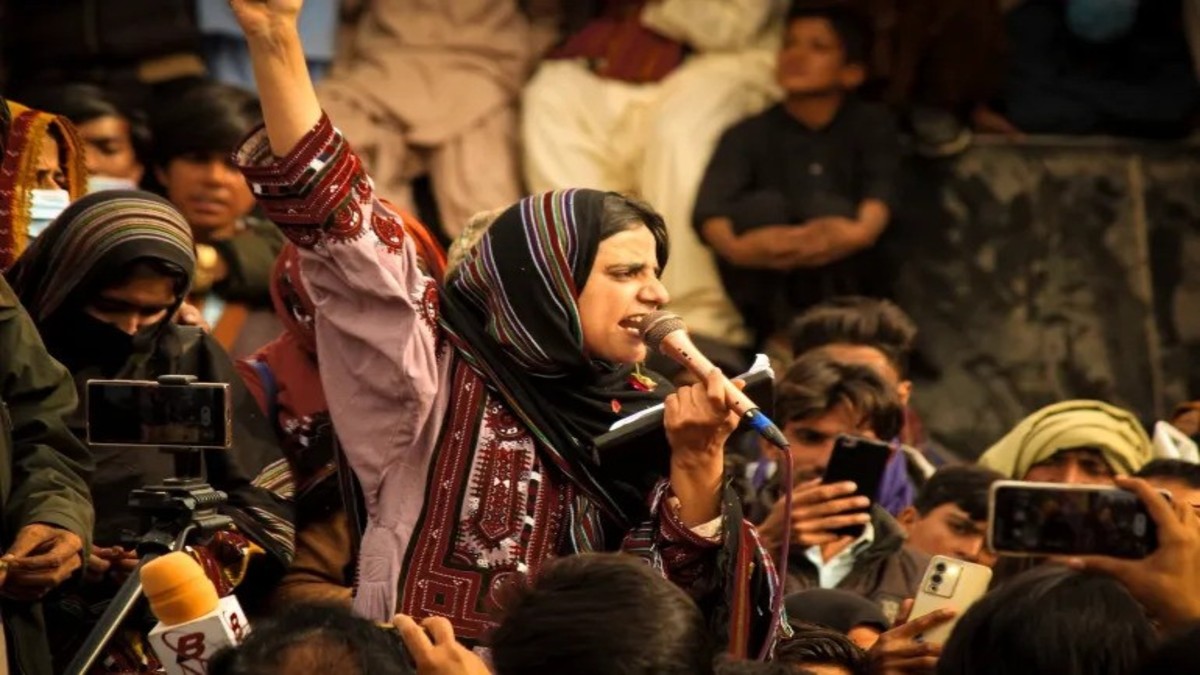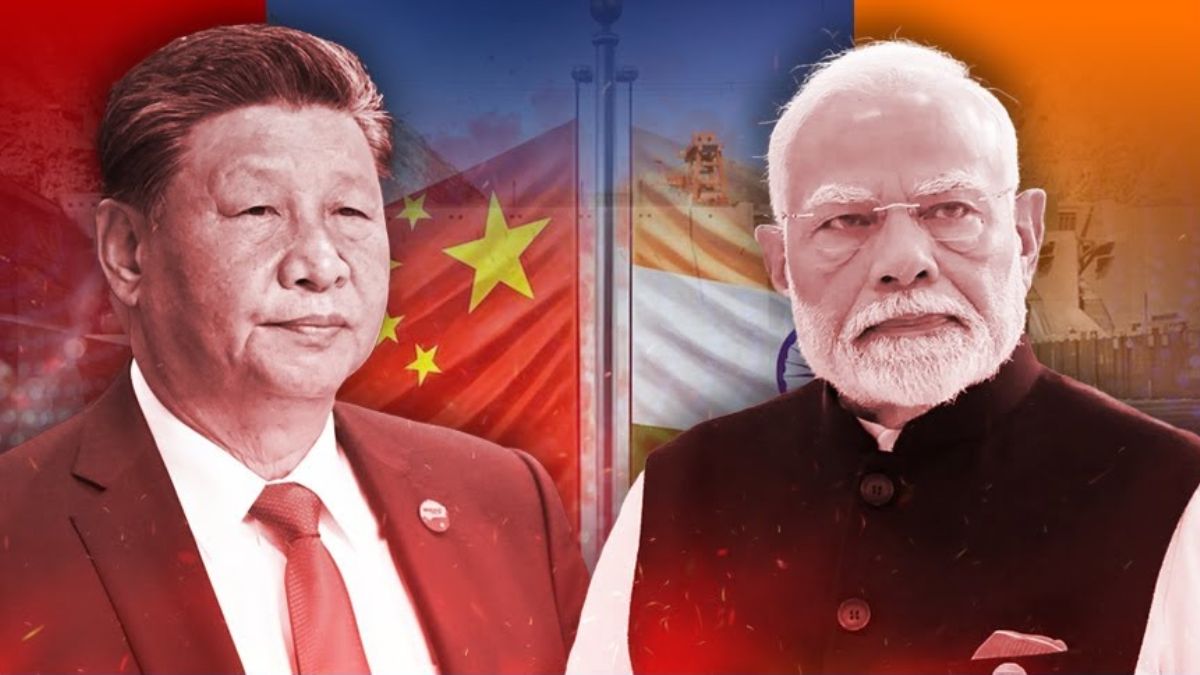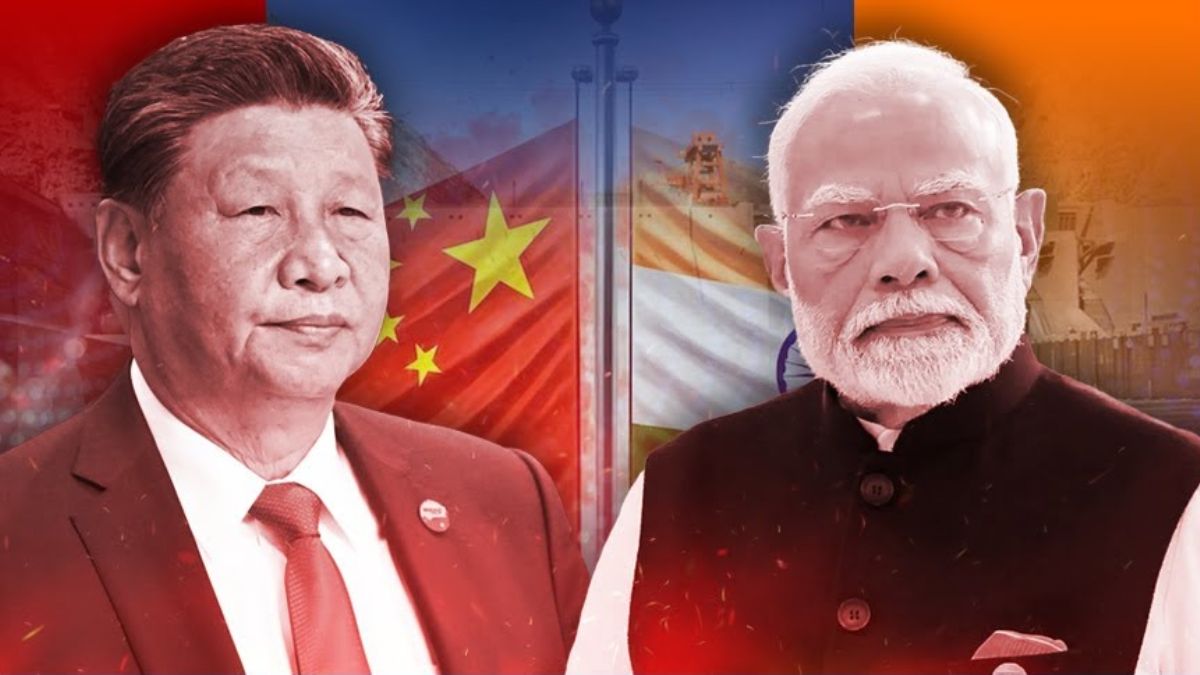The arrest of Mahrang Baloch illustrates the frustrations of a weak Pakistani state. She symbolises the Baloch movement for freedom, homeland, human rights, and women’s aspirations. Her arrest has opened Pandora’s box of reaction, resistance, and rejection of the hegemony of Pakistan. She has been arrested along with several others for the incitement of violence. Concocted charges were thrown at her to embroil her in a legal conundrum.
The Pakistani state assumes that keeping her in abeyance will minimise the intensity of the Baloch insurgency. Conversely, this has forced Quetta into protest and the shutter-down strikes across Balochistan. Turbat, Mastung, Kalat, Kharan, Chaghi, Dalbandin, Dhadar, and Panjgur have declared shutter-down strikes. The whole of Balochistan has been disturbed by this arrest.
The arrest has added fresh fuel to the ongoing Baloch resistance against the Pakistani state. An internet shutdown has been enforced to prevent the mobilisation of the masses. But Balochistan has been awakened to action and resistance. She is a grassroots leader who inspires people from all walks of life, irrespective of gender, age, class, or profession. Her arrest has conflagrated the Baloch issue.
The protesters have blocked the Turbat-Karachi and Quetta-Karachi highways, inflicting connectivity paralysis. This indicates the failure of the Pakistani state to keep its patchwork nation intact. Moreover, Mahrang Baloch has been nominated for the 2025 Nobel Prize. She is no longer a local personality. Her persona as a human rights activist has been recognised internationally. To muzzle her with arrest will not work in Pakistan’s favour. Her arrest will invite international reaction.
Baloch activists across the world may project her arrest as an unacceptable and gross violation of the human rights of Baloch women and people as a whole. Her stature as the symbol of Baloch rights is indomitable. The more the Pakistani state tries to check her, imposing arrest and detention, it will invite further trouble for itself. The Baloch movement is no longer unidimensional. It has assumed multidimensionality. It does not lean on one front entirely. It has multiple fronts. It is no longer confined to tribal leaders (Sardars), resentment, or disillusionment with the Pakistani state. It has reached the grassroots and become the Pan-Baloch phenomenon.
Pakistan’s conventional tactics of isolation and elimination will not work any longer. The Baloch uprising has gone beyond the Pakistani military’s control. The Pak military has lost its ferocity. It has become toothless. It believes in the power of propaganda colluding with its cohorts. Knowing the stature of Mahrang Baloch, it is counterproductive to arrest and heap imagined charges.
Pakistan cannot exist without Balochistan. The latter’s geostrategic and natural resources make it the jewel in the crown of Pakistan. But Pakistan stamps its authority. Hegemony characterises its state policy. It prefers force to dialogue. It is a military state with a rubber-stamp civilian government. Religion is used conveniently to empower the state. These strange juxtapositions do not enable a nation to understand the meaning of dialogue to settle domestic issues.
Forced annexation and oppressive rule have been the indices of its statecraft. Pakistan is an artificial state. It has no organic foundations to bind people and land together. It depended on Islamic ideology for its existence. But it could not unite the state anymore. Balochistan is the beginning of Pakistan’s balkanisation. Once the dent is done, others will soon follow the trail. Its conflict model has boomeranged. Implosion knocks on the door.
If there is any saving power that may come to Pakistan’s rescue, it is Beijing. China has significantly invested in the region. Its ambitious China-Pakistan Economic Corridor (CPEC) faces grave danger because of the Baloch insurgency. Gwadar features prominently in China’s geostrategic calculus. Beijing has a military base in Djibouti. Karachi and Gwadar will give China the geostrategic advantage to connect with the Arabian Sea, overcoming its dependence on the Malacca Strait. Its Malacca dilemma or choke point will not cause connectivity stress if the CPEC materialises.
China’s deep-seated desire to contain India will be fulfilled by exercising hegemony over the marine space in the Arabian Sea. Exercising influence over the Arabian and Red Seas will help Beijing emerge as an impactful force in volatile West Asia. Its aspiration to become the number one global power through the Belt and Road Initiative (BRI) and Silk Road diplomacy will be emboldened.
Therefore, China has a stake and interest in the region. It will try everything in its capacity to keep Pakistan in workable order. If Balochistan breaks away from Pakistan, China will bear the brunt of the collateral. Balochistan Liberation Army’s (BLA) antagonism against China is not ambiguous. BLA makes no mistake in decoding the Chinese intentions. The chronic political instability increases Beijing’s headache. The Pakistani military does not have the economic strength and grit to launch massive offensives against Balochistan. The terrain is quite unfriendly for the Pakistan military. The winning percentage is thin. This will slump the morale of the army.
It is alleged that Beijing might use a private force to guard its interests and infrastructures in Balochistan. BLA may not appreciate such undertakings. It will expose the weakness of Pakistan’s military. Islamabad’s hubris rests on its military. Its weakness will ensure the dramatic implosion of Pakistan. The anxiety of security threats will affect China considerably. How China will react to this is something to be seen. The Chinese dilemma is bound to increase as long as the Baloch insurgency continues. Balkanisation will hurt Beijing seriously. The economic loss will dent China’s ambitious expansionism.
Given these developments, India carefully observes the developments in Balochistan and maintains strategic silence. But wherever the need arises, it speaks with the finest objectivity. India’s External Affairs Minister S Jaishankar has recently condemned Pakistan on the floor of the Lok Sabha for human rights violations, erosion of democracy and persecution of minorities. These statements will spread a ripple effect in the region.
Jajati K Pattnaik is an Associate Professor at the Centre for West Asian Studies, School of International Studies, Jawaharlal Nehru University, New Delhi. Chandan K Panda is an Assistant Professor at Rajiv Gandhi University (A Central University), Itanagar. The views expressed in the above piece are personal and solely those of the authors. They do not necessarily reflect Firstpost’s views.


)
)
)
)
)
)
)
)
)



